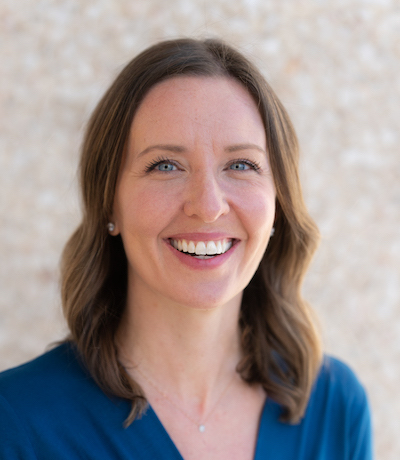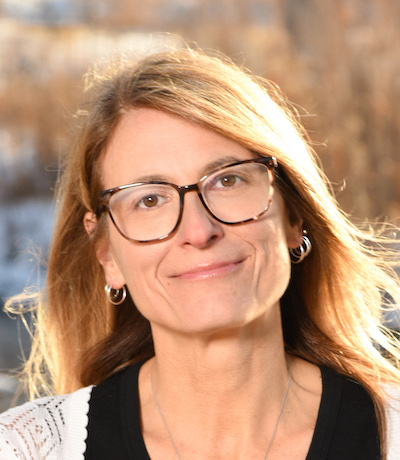Faculty Lifecycles
BY THE NUMBERS
first-year faculty completed the “Teacher Scholar” Faculty Learning Community since Fall 2019
adjunct faculty attended the Part-Time Faculty Orientation since its launch in 2021
unique page views were captured for new web resources on preparing for and experiencing retirement since their creation in 2021
Teaching and Professional faculty attended the “Pathways to Promotion for TPF” panels in 2021 & 2022
different faculty members attended one or more events in the “faculty lifecycles” series
retired and current faculty attended two retirement-focused events hosted by Chancellor Emerita Rebecca Chopp and Chancellor Emeritus Robert Coombe
Overview
Moving beyond one-size-fits-all faculty development means taking account of how faculty experiences and needs differ across their careers. Prospective faculty wonder what life is like at DU. Early-career faculty need to develop navigational capacity and experience a sense of belonging to thrive at DU. Those in mid-career may reflect on how their career connects with their values and potential leadership skills. Faculty in the later stages of their careers have questions about legacy and retirement, and may want to continue to share their intellectual gifts with the campus after they become emeriti. The VPFA provides intentional support customized for the different stages of the faculty lifecycle and in times of transition.
Career experiences also differ by appointment type and series. The VPFA deliberately designs purposeful resources for Teaching and Professional lines, part-time faculty, and tenure-track faculty. Intentional work across the faculty lifecycle contributes to DU’s Strategic Initiative #3, helping “cultivate an exceptionally diverse, inclusive, equitable, and welcoming community,” where all faculty can succeed. It aligns with goal three of the university’s DEI Action Plan, which includes a commitment to “Advance Faculty Diversity & Retention,” and connects to the “Pursuing Careers & Lives of Purpose” dimension of the 4D Experience. Finally, focus on the faculty lifecycle helps the VPFA meet the goal of seeing and valuing each faculty member for the gifts they bring to the DU community.
Signature Programs
New Faculty Onboarding
With leadership from the Office of Teaching and Learning (OTL) and the VPFA, new faculty onboarding efforts have expanded considerably. Since summer 2019, new faculty are welcomed with staggered letters from campus leaders and relevant offices, and with a newly created asynchronous Canvas Course containing resources on campus policies; support for teaching excellence and growth; research, scholarship, and creative activity; and equity, diversity, and inclusion efforts. In addition, faculty attend a half-day orientation session hosted by the Provost’s Office and are invited to join a year-long faculty learning community (FLC) and other stand-alone workshops through the OTL, the Diversity, Equity, and Inclusion (DEI) division, the Office of Research and Sponsored Projects (ORSP), and more. In the future, the faculty onboarding experience will extend through the first three years of employment and provide more opportunities for community and collaboration.
Faculty Learning Community: Teaching and Professional Faculty Tools for Success
This FLC explores areas essential to the success of teaching and professional faculty, including community building, effective instruction, DU culture, promotion and academic careers, national trends, and TPF roles. Sessions offered in AY 20–21, 21–22, and upcoming in 22–23 FLC include the text, Inclusive Collegiality and Nontenure-Track Faculty: Engaging All Faculty as Colleagues to Promote Healthy Departments and Institutions.
Career Advancement Workshops
The processes of promotion, reappointment, and tenure are consistent drivers of faculty stress, consternation, and insecurity. The “Pathways to Promotion for Teaching & Professional Faculty” workshop, offered yearly since 2018, opens space for teaching and professional faculty across campus to share resources and experiences about the promotion process outlined in the Policies and Procedures Relating to Faculty Appointment, Promotion, & Tenure guidelines approved by the Board of Trustees in 2015. Likewise, “Crafting the Narrative Arc,” offered yearly since 2019, offers strategies for shaping myriad faculty accomplishments into a cohesive statement structure that will present a strong case for tenure, promotion, or reappointment. Over 150 faculty members have attended at least one of these workshops.
Cross-Identity Mentoring Community of Practice
In early 2022, Faculty Fellow of Mentoring Initiatives and Teaching Professor, Heather Martin, convened 15 faculty-mentoring leaders from across faculty lines for an in-depth exploration of cross-identity mentoring at DU. The Community represented nine schools and colleges, including three department chairs and five full professors. Over nine months, faculty explored mentoring approaches happening across DU and engaged mentoring approaches discussed in the literature that attend to intersections of gender, race, and identity. The Community is currently developing an institutional guide to mentoring best practices, while using a train-the-trainer approach to develop events, activities, and resources for use in departments and programs across campus. The goal of the Community and other mentoring programming is to build an inclusive culture of mentoring across campus.
IMPACT
- Over 50% of participants in the 2021–2022 new faculty “Teacher Scholar” FLC showed statistically significant gains in measures of belonging, fit, and transparency at DU.
- Overall, faculty who attended a faculty lifecycles event and completed an evaluation agreed or strongly agreed:
- The information shared in the event connected to my professional and personal values (76%).
- I would recommend this event or similar events to others (86%).
Spotlight Event
“If I Knew Then What I Know Now” Panel
Starting at a new institution is nearly always daunting, but especially during a global pandemic that has upended research trajectories, reconfigured teaching modalities, and taxed both student and faculty bandwidth. This 2021 panel featured faculty in their second through fifth year, offering perspectives on how to approach teaching, research, and service at DU.
Panelists included Jack Buffington, Assistant Professor of the Practice, Daniels College of Business; Kerstin Haring, Assistant Professor, Ritchie School of Engineering and Computer Science; Mike Nguyen, (former) Assistant Professor, Morgridge College of Education; Kathryn Fox, Assistant Professor, College of Arts, Humanities, and Social Sciences; and Ashley Hamilton, Assistant Professor, College of Arts, Humanities, and Social Sciences.
PEOPLE

Laura E. Sponsler, Ph.D.
Resident Scholar for Teaching and Professional Faculty
Clinical Associate Professor of Higher Education at the University of Denver, Laura Sponsler, serves as the Resident-Scholar for Teaching and Professional Faculty. As the Resident Scholar for Teaching and Professional faculty, Sponsler’s research and work supports faculty off the tenure track—the Teaching and Professional Faculty (TPF)—through faculty development initiatives and organizational change to institutionalize a respectful, inclusive, and collegial culture for all faculty.

Heather N. Martin, Ph.D.
Faculty Fellow of Mentoring Initiatives
Heather Martin is a Teaching Professor of Writing and the Faculty Director of the First-Year Seminar program at DU. As Faculty Fellow of Mentoring Initiatives, Martin’s mission is to collaborate with faculty mentors from across ranks and series on research-based mentoring initiatives that enrich faculty experiences, cultivate community, and promote faculty wellbeing. Since joining the VPFA team, Martin has been invited to speak on mentoring in higher education at various national convenings, including the University of New Mexico’s Mentoring Institute and the Conference on Writing and Wellbeing, and she has work forthcoming in the Chronicle of Mentoring & Coaching.
